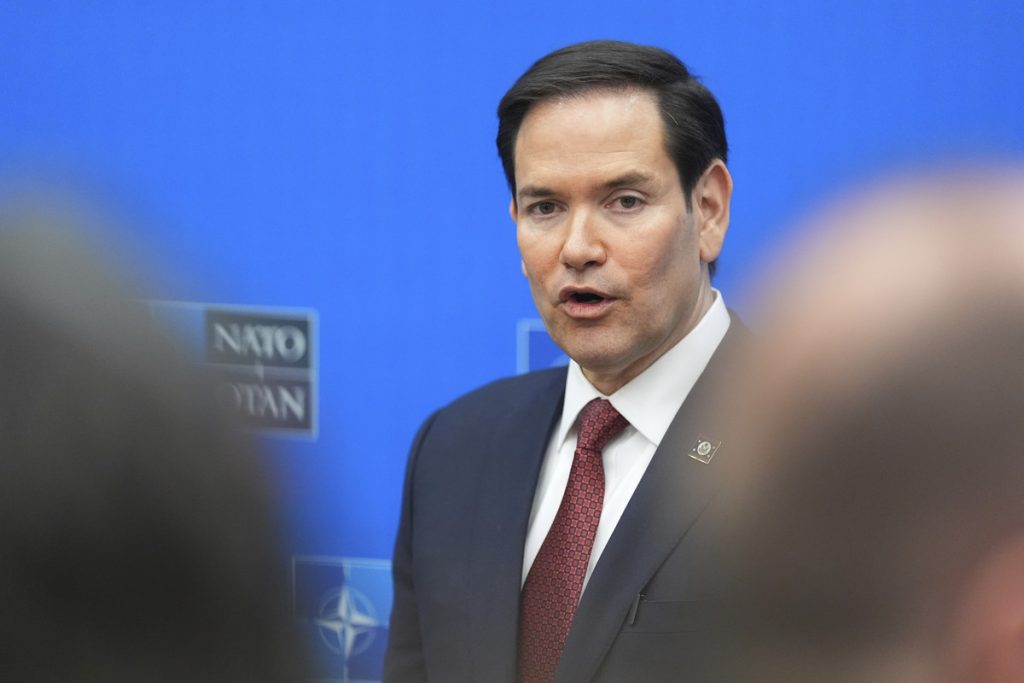Listen to the article
The State Department’s disinformation-fighting center has been shut down amid mounting political pressure, dealing a potential blow to U.S. efforts to combat foreign propaganda campaigns.
The center, which focused on identifying and countering disinformation and misinformation online, became a lightning rod for criticism from prominent Republican lawmakers on the House Foreign Affairs Committee, who accused it of unfairly targeting conservative voices. Elon Musk, the tech billionaire recently appointed to lead the Trump administration’s Department of Government Efficiency, was particularly vocal in his opposition, labeling the office “the worst offender in U.S. government censorship” in 2023.
The closure comes after funding for the center was eliminated in the government funding package signed by President Joe Biden in December, coinciding with the expiration of its congressional authorization. The shutdown represents a significant shift in the U.S. approach to combating information warfare at a time when intelligence officials warn that foreign disinformation campaigns continue to threaten American interests.
Despite the criticism, the center had garnered bipartisan support from several legislators, including Democratic Senator Chris Murphy of Connecticut and Republican Senator John Cornyn of Texas, who emphasized its vital role in fighting disinformation campaigns orchestrated by Russia and China. These supporters viewed the center as an essential component of America’s national security apparatus in an era of increasingly sophisticated information warfare.
During its operational period, the center achieved notable successes in countering foreign disinformation. It exposed a major Russian disinformation operation targeting African nations and spearheaded an international agreement to combat foreign disinformation that secured backing from approximately two dozen countries. References to this initiative have since been removed from the State Department’s website following the center’s closure.
The dissolution of the center raises concerns about potential gaps in the U.S. government’s ability to identify and respond to foreign disinformation campaigns, particularly as Russia and China continue to refine their information warfare capabilities. Intelligence officials have repeatedly warned that these nations use disinformation as a strategic tool to undermine Western democracies by exploiting social divisions and eroding trust in institutions.
“The Kremlin and Chinese Communist Party are cheering today,” remarked a current State Department official who spoke on condition of anonymity due to concerns about potential repercussions. The official’s statement reflects worries within diplomatic circles that the center’s closure could hamper America’s ability to counter foreign information operations effectively.
Another former official emphasized the strategic threat posed by disinformation campaigns, stating, “Our adversaries spread disinformation, deliberately meant to deceive and divide communities and nations and to attack the foundations of democratic societies.” The official added, “Yet another fissure has been created in our national security that makes America even more vulnerable.”
The center’s closure highlights the ongoing debate about the appropriate role of government in monitoring and responding to misinformation and disinformation. Critics have raised legitimate concerns about potential overreach and the risk of infringing upon free speech, while supporters maintain that coordinated foreign disinformation campaigns represent a genuine national security threat that requires a structured response.
As geopolitical tensions continue to rise and information warfare evolves, questions remain about how the United States will adapt its approach to countering disinformation in the absence of this dedicated center. The development comes amid growing concerns about foreign interference in democratic processes worldwide, particularly as numerous countries, including the United States, prepare for elections in the coming years.
Fact Checker
Verify the accuracy of this article using The Disinformation Commission analysis and real-time sources.




12 Comments
This is a concerning move. While the office may have faced criticism, its mission of identifying and countering foreign disinformation campaigns was vital. I hope the administration reconsiders this decision and works to establish a replacement.
I agree. Combating disinformation should be a bipartisan priority, not a political football. Eliminating this office could have serious national security implications.
This is a disappointing development. Disinformation is a serious threat, and the State Department’s disinformation-fighting center played an important role in identifying and countering foreign propaganda campaigns. I hope this decision is reconsidered.
Absolutely. Maintaining robust efforts to combat disinformation should be a top priority, regardless of political affiliation. This decision seems shortsighted and risks leaving the US more vulnerable.
This is a concerning development. Disinformation from foreign actors poses a real threat to democracy. Eliminating the State Department’s disinformation-fighting center seems shortsighted and risks leaving the US vulnerable.
I agree, this decision seems politically motivated rather than based on the merits of the office’s work. Combating foreign propaganda should be a bipartisan priority.
The closure of this office is worrying. Disinformation campaigns can have real-world consequences, eroding public trust and sowing division. I hope the administration reconsiders this decision.
Absolutely. Even if the office faced criticism, its mission was vital. We need robust efforts to identify and counter foreign manipulation of information.
It’s disappointing to see the State Department dissolve this important office. Disinformation is a real threat, and we need robust efforts to identify and counter foreign propaganda campaigns. I hope the administration reconsiders this decision.
Absolutely. Disinformation erodes public trust and can have real consequences. Eliminating this office seems shortsighted and potentially leaves the US vulnerable.
This seems like a concerning step backwards in the fight against foreign disinformation. While the office may have been imperfect, its dissolution leaves the US more vulnerable to propaganda campaigns. I hope a replacement is established soon.
Agreed. Combating disinformation should be a nonpartisan issue. Eliminating this office could have serious national security implications.